지속가능경영
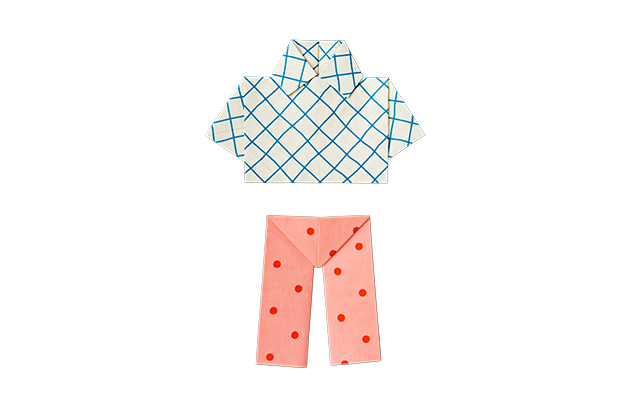
Our commitment
At Flying Tiger Copenhagen, we know that we depend on the environment we operate in, and our commitment to conduct our business ethically and responsibly runs through the full value chain, from sourcing, to shipping, to sales in stores. We want our customers to know that when they buy a product from Flying Tiger Copenhagen, it has been produced in alignment with ethical, environmental and social standards and is safe to use. This is crucial for the success of our company and for our consumers. In 2020, we have taken great strides in our efforts within sustainability. Targets have been further defined, implemented and expanded. Data processes have been defined and aligned with the organisational possibilities and most importantly: sustainable thinking has become a natural part of working.
Strategic targets
We focus on three fundamental pillars in our sustainability strategy: Products, operations and people, founded on communication and reporting. For these, our mission statements are as follows:
- Products
- We want to offer our customers fun, surprising and creative eco-friendly choices. To achieve this, we are making sustainability an integral part of how we design and source our products. We focus on circular materials, design, packaging and labelling.
- Operations
- We are committed to ethical sourcing, capacity building, social responsibility and environmental management in production. In our own operations: offices, warehouse and stores, we focus on CO2 neutral operations and circularity of materials.
- People
- We believe responsible behaviour in all aspects makes a positive difference in many people lives' and is key for being successful as a business. We want to enable our partners, suppliers, employees and customers to act more sustainably.
People
Flying Tiger Copenhagen is held accountable for creating a work environment that respects our employees’ human and labour rights and allows them to thrive as professionals. Our Human Rights Policy outlines our standard to comply with all applicable UN and ILO conventions and applies them to our employees working across all levels. At Flying Tiger Copenhagen, we rely on our ability to attract, motivate and retain highly qualified employees at all levels of the organisation, from store staff and managers to creative and administrative people at head office. As we aim to offer an engaging workplace with equal opportunities for all, we employ people with a wide range of nationalities and educational backgrounds. Now that we are a truly global company, it is a particularly crucial task for us to keep working on the issue of diversity to live up to our values of being a welcoming and inclusive organisation. In leadership positions we employ 46% female and 54% male employees.
As part of the transformation process, the Company changed its board composition during 2019. Consequently, at the end of 2019, the Board of Directors of Zebra consisted of six males. It is still the Board’s ambition to increase diversity, including gender representation on the Board. It is the target to have at least two female board members before 2023. It is the current assessment that the Board has the required qualifications and composition to oversee Zebra’s strategic development. Achievement of the target will be sought in connection with ongoing changes to the composition of the Board, where special efforts will be made to ensure that female candidates are identified and participate in the selection process.
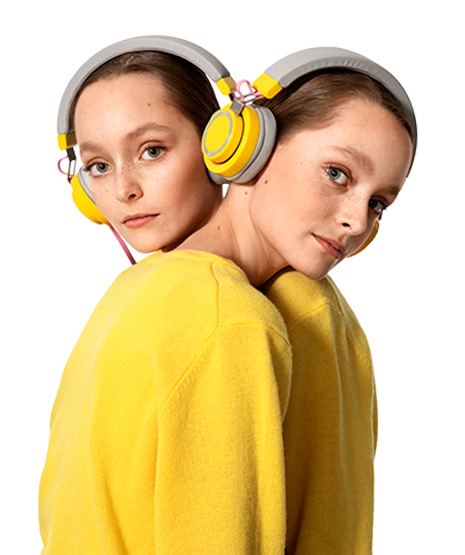
It is our responsibility to build the competencies of our colleagues. Flying Tiger Copenhagen has a Group HR function that supports our employees in the HQ in Copenhagen and our locally operating partnerships.
In 2019 we introduced Peakon at HQ in Copenhagen. Peakon is an engagement survey tool that measures employee engagement across the organisation. The Peakon results have provided a strong data foundation and vast material about the well-being and beliefs of our employees. The people managers of Flying Tiger Copenhagen now have real life data about their teams and individual team members. This input has resulted in transparency in terms of improvement areas as well as information about strengths of the company.
The HR Business Partners act as strategic partners for the business. In 2019, we strengthened this vital role in supporting our employees at all levels to ensure they have a great working experience at Flying Tiger Copenhagen.
In order to continuously grow and develop the organisation, the Talent Attraction area and ensuring that Flying Tiger Copenhagen remains and attractive employer of choice, we have during 2019 increased the focus on Employer Branding primarily through LinkedIn activities and postings. We believe that it is particularly important to recruit the right profiles for our company, we use several personality assessments to assess our candidates against our organisational culture and values.
The digitalisation process that kicked off in 2018 continued throughout 2019 and will remain a strong focus area during 2020./
In the UK, the Gender Pay Gap legislation, under the Equality Act 2010, requires an employer with 250 employees or more to publish their gender pay gap for their employees.
Products
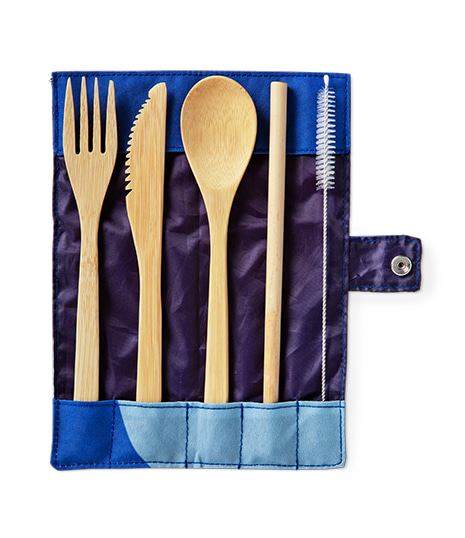
Safety
All products go through our product compliance process to ensure that they are safe and compliant. This means that all materials must be approved prior to purchase. Our test programme ensures that our products are tested for hazardous materials. With very few exceptions, all our products are tested in the pre-production phase. For products considered to be high risk, the testing is repeated during mass production. When we define our requirements, our policy is to comply with the EU requirements or the applicable national legislation, whichever sets the highest standards. In several areas, we go beyond the legal requirements.
This means that we, for instance, prohibit chemicals like triclosan, formaldehyde, phthalates (all types of phthalates), formamide and coating materials that are based on halogens (bromine, chlorine, fluorine etc.). We work continuously on improving and developing our product compliance requirements leading to safer products. This is done through close cooperation with our suppliers, helping them to understand and implement our restrictions.
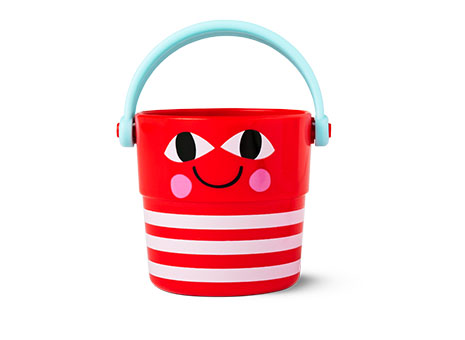
Quality
Flying Tiger Copenhagen’s quality programme aims to constantly improve the quality of our products through physical inspections. Here, we evaluate the general quality of the products in terms of durability and functionality, but also issues such as hygienic standards and risk of mold development during production or the shipment times from Asia to Europe. The selection of the products subject to quality checks and description of the quality check points are selected at the headquarters in Denmark, while the inspections and handling are performed by a local team of quality inspectors and in the local language.
The strong quality focus also creates a higher awareness among our suppliers, leading to a continuously higher quality level for all products.
Single-use products
Single-use products are products, which are thrown out after only one use. The environmental impact can be very high considering the short lifespan, which is why we want to halve our number of single use products by 2025. The single-use items, which we have decided to keep for now are either low impact and/or have no natural replacements; like paper napkins (made from sustainable forestry) and bandaid-plasters (no natural replacement). Another consequence of this focus area is that we will have no single-use paper straws or snack bags from 2022.
Materials
In 2020, our most used product material was plastic, quickly followed by wood and metals. Our strategy for materials is to use more renewable (like wood, paper, bamboo and straw) and easily recyclable (like metal and glass) materials and less plastics. Plastic is a versatile material: It is light-weight, durable and can be used for many different things. However, we want to be clever about how we use it; reducing the amount we use and using a lot more recycled plastic – thereby supporting the overall global reduction and more recycling of plastics.
We want to help customers with their recycling of our products by embedding the recycling category into all our plastic products.
Our plastic targets supports the transition to a circular economy. We want to heavily reduce our use of plastics, but will continue to use it when it is the right material for a particular product. At the same time focusing much more on buying recycled plastics, in order to support the global system of plastic recycling.
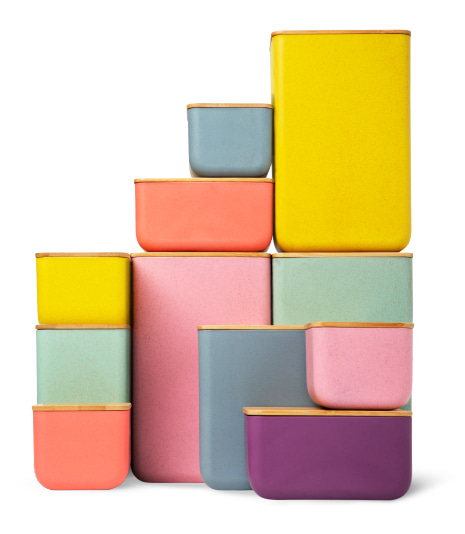
Responsible sourcing
In 2020, we purchased products from around 330 suppliers worldwide. Approximately 76.9% of our spend comes from suppliers based in China; 21.7% from suppliers based in the EU, and the remaining 1.4% come from suppliers spread across the world, in countries like India, Nepal, Taiwan etc. Most of our direct suppliers are trading companies who source from a range of different factories, enabling us to offer a broad array of novel products across a variety of categories. Our sourcing pattern was heavily influenced by COVID-19 in 2020, resulting in constant, rapid changes in our order flow.
Our focus on responsible sourcing ensures that we account for the impacts of human and labour rights on workers and communities. Through our social compliance process, we work to ensure that factories, selected for production on our behalf, can meet our requirements, and that the people producing our products are treated with respect and provided with fair and safe working conditions. We have an ongoing focus on improving our social compliance process and our performance. The responsible sourcing process follows three steps:
Social compliance process
-
1. Commitment to the Flying Tiger Copenhagen Supplier Code of Conduct.
All product suppliers must sign the Flying Tiger Copenhagen Supplier Code of Conduct. The Code is based on international standards as defined by the United Nations (UN) and the International Labour Organisation (ILO). It defines our requirements in the areas of workplace health and safety, terms of employment, working hours, wages, environmental protection and business ethics. Among other things, it prohibits child labour, forced labour, dangerous or severely unhealthy working conditions, and abusive disciplinary practices. No purchases can take place without a valid Code in place. Commitment to the Code must be renewed every other year in writing.
-
2. Risk assessment and factory audits.
Factories are selected for audit by assessing the risk based on (a) country of production, (b) purchase volume and (c) product category combined with individual assessment of:
(a) brand exposure of product; and (b) audit history and performance of factory, including sub-contracting practices.
Factories, rated high-risk, are selected for audit. On-site factory audits are carried out either by our China-based audit team or by Elevate, an organisation specialising in social compliance factory audits. All audits follow the Flying Tiger Copenhagen Audit protocol that consists of 115 questions and assesses practices in the areas of ethics, sub-supplier management, human rights, labour practices, and the environment. Audits include a combination of site assessment, documentation review, management interviews and anonymous workers' interviews. Audits can be announced, semi-announced and unannounced, depending on progression of audits and types of findings in previous audits. All factories are evaluated from A (compliant) to E (zero-tolerance) and most of the factories we used are rated C. We have a strategic target to raise the rating of the factories we use. -
3. Improvement and remediation
All factories, apart from A-rated factories, must implement a corrective action plan (CAP) within a defined timeline. The CAP is reviewed regularly until closure by Flying Tiger Copenhagen, and the factory must go through a re-audit to verify improvements. Re-audits are semi-announced or unannounced. Factories that present severe zero-tolerance issues are rejected (e.g., use of child labour, forced labour, severe safety and human rights issues, attempted bribery of auditor). In some cases, where good faith and procedural errors can be verified, the factory is put through a requalification process, which includes training, a strictly monitored improvement plan and a re-audit. In case a supplier and/or factory is unwilling to improve, we stop the collaboration permanently.
We do, on occasion come across factories using child labour. We have a zero tolerance for child labour and strict rules for young workers (between 16 and 18). If we find child labour, the factory must immediately remediate the case and will be put on hold until further notice.
We have entered a collaboration with The Center for Child Rights and Corporate Social Responsibility (CCR-CSR) in China that helps us with child labour remediation and prevention. CCR-CSR makes sure that every case is handled with respect to the individual child's circumstances. They engage in dialogue with the family and ensure appropriate measures like enrolling in vocational schools and monthly living stipends throughout the remediation period. In 2020, we had zero child labour cases.
In 2020, we conducted 121 audits in our factories in China. In normal years, we conduct around 300, but due to COVID-19, travel restrictions and social distancing, the number of audits in Q1 – Q3 was heavily reduced. In Q4, we were almost back to normal. The most common issues to improve were ensuring a safe and healthy working environment and reducing overtime. Our target for 2021, is to return to our usual number of audits of around 300, and to pursue greater transparency through intensified pre-screening and further capacity building of our suppliers.

Supplier engagement and capability building
We consider our audit processes a critical tool to ensure compliance in our supply chain, but we have also learned that to drive genuine improvements, we must combine these processes with proactive capacity building and training of our suppliers and their factories.
In 2020, we continued to establish a closer engagement with our suppliers. The inability to arrange larger physical conferences or training sessions due to social distancing spurred the creation and implementation of a Supplier Academy. The Academy now runs frequent sessions on relevant topics within sustainability, compliance and quality, allowing us to provide training related to more topics and to a broader audience.
Homeworkers
Recognising that each year we buy several products that are handmade by homeworkers and the fact that we know very little about the working conditions that far down our value stream, we have a target to have a positive influence in the homeworker societies, which we source from. In the beginning of 2020, we planned to do a pilot in one of these communities, gathering data and knowledge in partnership with the homeworker focused NGO, Nest. This initial project was unfortunately delayed due to COVID-19, and we now expect it to take place during H1 2021. The insights gathered in this pilot will guide us in reaching our target of 1,000 homeworkers positivily affected. However, we do not expect to reach the target within the original timeframe.
Planet
Sustainable packaging
When it comes to great packaging, less is more. Packaging is one of the biggest waste categories worldwide, and we, as a company, strive to find the right balance between minimising the packaging, and using better packaging design and materials, while still protecting the products and communicating necessary information to our customers.
In 2020, we have developed a new primary packaging manual defining both brand and sustainability guidelines around the principles of clear communication, minimal packaging and optimal recyclability.
- Minimise packaging
- Minimal packaging ensures less waste and more efficient logistics. We have an overall focus on using as little packaging as possible and a strategic focus on removing plastic when possible. Our target to reduce the use of plastic packaging by 20% in 2022 is on track, and we might set an even more ambitious target in the future. Our focus on plastic reduction means that we sometimes use more cardboard, which is heavier overall, thereby growing our logistic emissions. We realise that this might be a negative consequence, but still believe that plastic reductions are the right way forward.
- Maximise recyclability
- We want to make it as easy as possible for our customers to recycle packaging, and we have a target to have 100% recyclable packaging in 2022. When packaging materials are monocomponents or easily separated into waste categories, more packaging is ultimately recycled.
To support our reduction and recyclability targets, we will, for examples, prioritise using stickers and hangtags (paper), drastically minimize our use of blister packaging, and ban the use of expanded polystyrene and PVC. - Pens
- One tangible example of working with our packaging principles is the casing for many of our pens. The old version was a plastic box and tray, with an insert in cardboard. Transporting extra air, because of the tray, and two types of material. The new version is made solely in cardboard – which is fully recyclable and still more lightweight than the previous packaging which means less carbon emissions. Selling millions of these pens annually make changes like this impactful; in 2020, this new pen casing alone resulted in 1.2 tons less plastic packaging.
Sustainable forestry
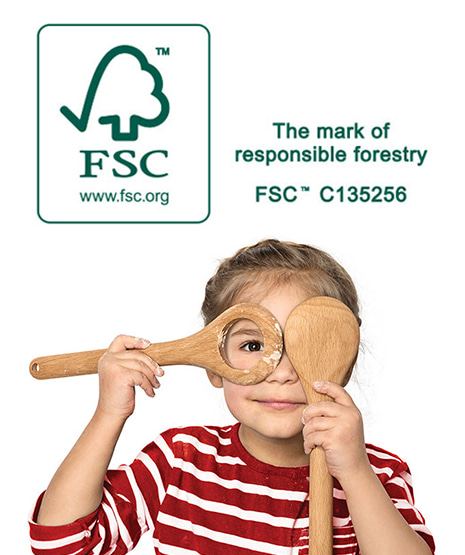
FSC™ - Forest Stewardship Council™
With our membership and certification of the Forest Stewardship Council (FSC), we support the promotion of forests managed with consideration for people, wildlife and the environment. Among other things, an FSC certification entails protection of biodiversity, and respect for the rights of local people as well as the people working in the forest: including that workers are properly trained, have decent health and safety conditions, and receive fair wages.
Notebooks, gift wrapping, napkins, and paper cups were an early part of our FSC-certified product portfolio, and our customers continuously find more FSC-certified wood and paper products in our stores, since it is our ambition to exclusively sell wood and paper products from sustainable forestry in 2022. When it comes to store furniture, we began to use FSC-certified wood in 2012. Since then, all new store furniture is FSC-certified, while the existing stores switch to FSC-certified furniture according to their usual refurbishing cycle.
Sustainable palm oil
Palm oil is a highly versatile oil used for a large number of products in primarily food and beauty on a global scale. Palm oil has also been, and continues to be, a driver for deforestation. Therefore, we want to only use palm oil in a responsible manner. Since 2019, we have worked to use less palm oil in our products and to only use sustainably certified palm oil. We are on track towards our goal of 100% certified palm oil in 2022.
Partnerships
- Plastic Change
- Since H2 2019, Flying Tiger Copenhagen has worked intensively to develop and implement a more circular mindset in the company's business concept. One of the initiatives is the collaboration with Plastic Change, which contributes to specific initiatives to manage and minimise the company's use of plastic.
- United Nations Global Compact (UNGC)
- We are proudly supporting the United Nations Global Compact, the world’s largest corporate sustainability initiative, and endorse its ten principles to respect human and labour rights, protect the environment, and fight corruption.
- Forest Stewardship Council (FSC)
- Through our FSC-certification, we support sustainable forestry, including protection of biodiversity and respect for the rights of local communities as well as forestry workers.
- Roundtable on Sustainable Palm Oil (RSPO)
- Since 2020, we have been a member of the RSPO, supporting their work to develop and implement global standards for sustainable palm oil.
- CCR-CSR
- We support and are a part of the CCR-CSR network, a social enterprise with competence, experience and knowledge to help companies improve and implement child rights-related CSR-strategies, programs and projects. We use CCR-CSR for the remediation of child labour cases in China.
- In Kind Direct & Dons Solidaires
- Since 2017, we have been donating products to In Kind Direct (UK) and its partner organisation Dons Solidaires (France), both minimising our environmental footprint and helping communities in need.
- Red Cross
- We have donated to the Red Cross, both minimising our environmental footprint and providing essential goods for their humanitarian work with refugees.
- National food banks
- We donate unsold food products to Fødevarebanken (Denmark), FareShare (United Kingdom), and Banc Dels Aliments (Spain), thereby minimising food waste across our value chain and making a difference to vulnerable social groups.
- Nest
- Nest is an NGO supporting the development of homeworkers working conditions. We partnered up with them in 2020, wanting to gain more knowledge about the homeworkers in our supply chain.
- WeFood
- We have donated food products that approach their expiry date to WeFood, a Danish supermarket only selling obsolete goods, to fight food waste along our value chain.

Charity donations
As a globally operating company, we want to positively impact local communities. We do our utmost to donate surplus products to people in need. In doing so, we minimise our environmental footprint as well as help disadvantaged families and communities.
- Products
- In 2020, we have donated products to a number of NGOs like In Kind Direct (United Kingdom), Red Cross (Denmark and Spain) and China Overseas Chinese Foundation. These organisations further distribute our wide range of products to people in need. For instance, 1,687 different charities across the UK have benefitted from our collaboration with In Kind Direct, the majority focusing on child/youth care and family welfare. This has been especially welcomed in a period where COVID-19 put extra pressure on families in need.
- Food
- From our food assortment, we have donated products to national foodbanks in Denmark, the UK, and Spain, as well as to WeFood, a Danish supermarket exclusively selling products that are no longer commercially attractive to retailers. Through these donations, we help reduce food waste.
Policies
Consistency and transparency are a key pillar in any responsibility work. We use our responsibility policy framework to clarify our positions, guide our decision-making and define expectations for our business partners. The framework comprises of policies on business ethics, human rights, product safety and the environment. Within responsible sourcing, our Supplier Code of Conduct is the leading document. It has been complemented by policies on animal welfare, child labour and young workers, as well as home workers. In 2018, we published our second transparency statement according to the UK Modern Slavery Act and we will continue doing so moving forward.
In 2019, we will also review and publish all our policies and establish new baselines in some areas.

Business Ethics
When dealing with our manifold suppliers and partners we are expected to manage the risk of unethical behaviour and to promote anticorruption. Our Business Ethics Code of Conduct outlines the ethical expectations to our employees. The Code is signed by all employees at Flying Tiger Copenhagen, all partners and subsidiaries, including their Headquarter staff, district and store managers. All our partners and most employees in leadership positions at Flying Tiger Copenhagen have received face-to-face business ethics training.
The Code of Conduct and the trainings are supplemented by our whistle-blower scheme, enabling our employees to report unethical and illegal behaviour anonymously. In 2019, no instance of illegal or unethical behaviour has been reported.

